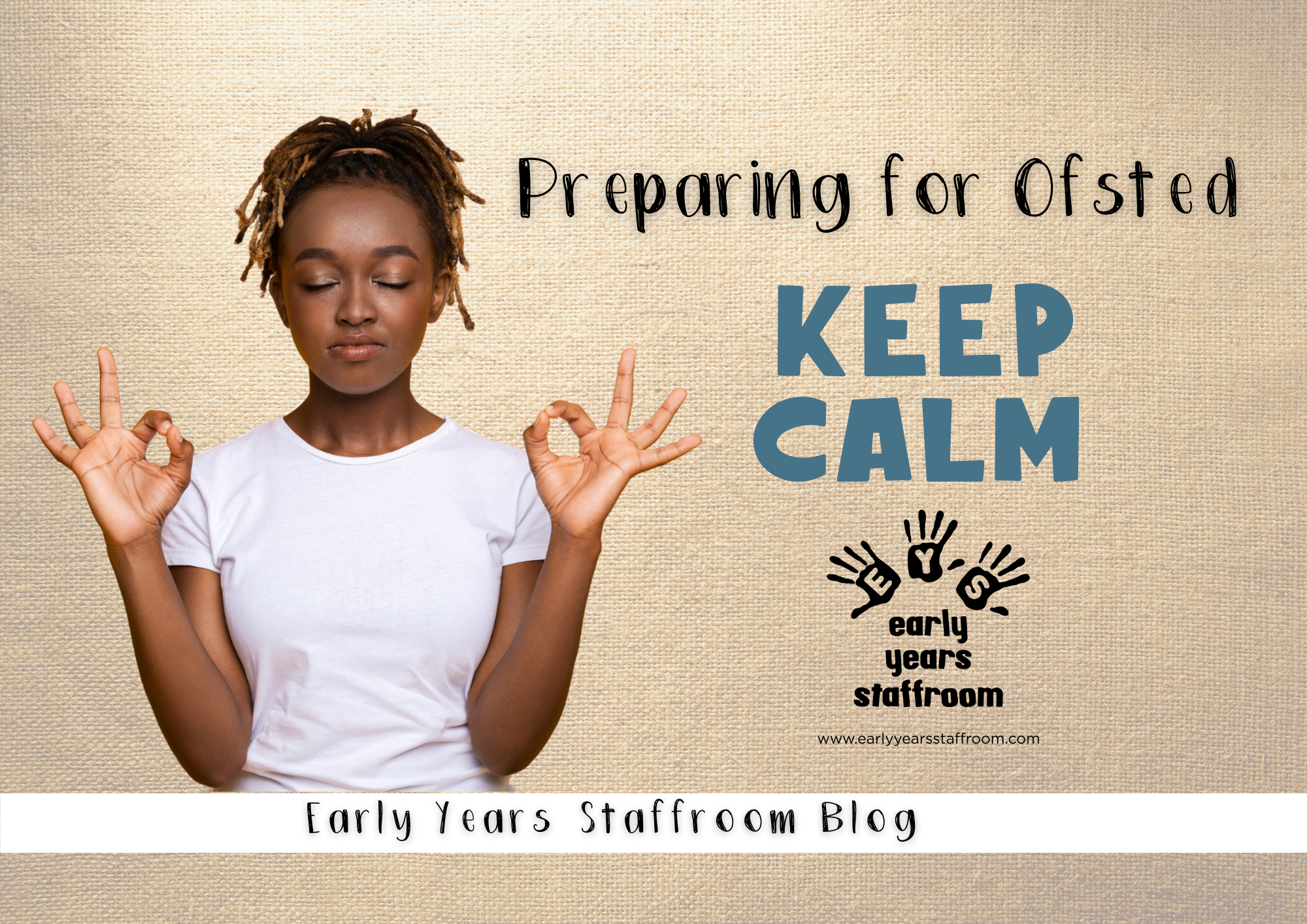
“Please, don’t overload your teams with preparatory work ‘for Ofsted’. Just don’t do it. And don’t run ‘mocksteds’. They are a waste of precious time”. Check out Amanda Spielman’s full address to #ASCL2022 @Ofstednews (Twitter).
When you get ‘the call’, talk with the inspector about what the focus is going to be so that you have a clearer understanding of what Ofsted will be looking for in your EYFS setting. As you prepare, involve all members of your early years setting and make sure they know what to expect. Talk to everyone about the main areas Ofsted will likely look for in your EYFS setting inspectors will talk with everyone about your settings culture in relation to pupils’ behaviour, the vision, support for staff and other systems such as safeguarding.
Providing staff with a simple checklist may be useful to check their knowledge and prepare them for potential questions. However, one thing many managers forget to tell their staff is what to say when they don’t know an answer. Nerves can sometimes get the better of us, staff would need to calmly tell the inspector that they are feeling a little nervous and can’t remember right now. More importantly though they would need to know where and how to find out that information, as understanding how to get the information is just as good as having it to mind in the moment. Ensuring staff are relaxed and not overwhelmed is key.
Well-being should not be overlooked. A focus on this may be a good idea in staff meetings and in supervisions. Ofsted may give staff opportunities to discuss workload and well-being in the form of questionnaires.

If you have a setting action audit plan it will be great to show the inspector, highlighting your reflections and where you want to improve. This will help clarify exactly what you want to get across to the inspector.
Early Years Staffroom -Management Audit Download
As well as having a few key points, topics and questions to reflect upon, demonstrating that you have addressed any issues in previous Ofsted reports will be a necessary requirement, but most importantly remember having a welcoming, warm environment where there are positive, respectful relationships and ‘knowing the children well’ will be what makes the difference between a good and poor inspection.
See the Ofsted handbook for a list of documents to show and ensure policies and procedures are to hand Government/Publications/Early-Years-Inspection-Handbook Ofsted have said that they are reducing paperwork expectations and the focus of inspection will be on practice. Inspectors should not ask to see any paperwork beyond the requirements of the EYFS and the EYFS says in requirement 2.2: “Paperwork should be limited to that which is absolutely necessary to promote children’s successful learning and development.
Yes – it is important to track children’s progress from starting points – but the focus will be on explaining how children are learning, developing and making progress, not on any paperwork or online systems you use and if your tracking is too complicated it might go against you during inspection.
It depends on the inspector – some do, and some don’t, but they have said they would rather watch and listen to us and ask us questions than focus on paperwork.
Ofsted will gather much of their evidence through discussion with you and your staff (if you have them).
The inspector might ask you, staff, parents and children questions about, for example:
It is worth noting that every staff member needs to know about their key children – what I call ‘having a story about every child in your head’… and every staff member needs to be confident when explaining who they would approach if they had a concern about a child or other staff member.
Internal assessment/tracking data – inspectors won’t ask to see this, but you can use it as evidence to demonstrate a point.
https://www.earlyyearsstaffroom.com/product/safeguarding-question-cards/.
This resource can be used for training purposes.
Incidents Reported
Have you had any incidents reported to Ofsted recently? If so, this is something you and all your staff are going to need to be aware of before the inspection, as well as the policies and procedures that were followed.
On a final note…
Remember most importantly, be honest and confident! Ofsted does not always ask the questions you expect, and the ones mentioned above are just a few to consider. Be sure to take as many opportunities as possible to flaunt the wonderful things you do.
“Good teaching is one-fourth preparation and three-fourths pure theatre”
(Gail Godwin)
Further reading, support and guidance:
Refer to the Statutory framework for the early years foundation stage to ensure you meet all the standards (mandatory from September 2021). Link EYFS Framework
Here is a free resource: https://thirdspacelearning.com/resources/resource-ofsted-deep-dive-questions/
Official Document Ofsted Myths Download
Blog written by Sarah Detheridge – ©Early Years Staffroom